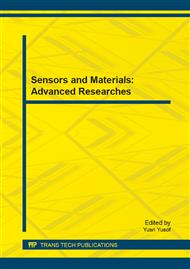p.241
p.245
p.248
p.258
p.262
p.266
p.270
p.275
p.280
An Optimized Method of Heat Sink Design for Controller Chip
Abstract:
The heat dissipation design is very important for controller chip. But the traditional methods can not get the best results. This paper introduces the basic theory about the heat dissipation design and puts forward an optimized method of the heat sink design. This paper uses the thermodynamic principle and matlab simulation to determine the geometrical size of heat sink which can make the controller chip work on the 50°C environmental temperature and the inner temperature of chip under 150°C. Using this method we can design the heat sink quickly and efficiently, and realize a balance between the performance and cost.
Info:
Periodical:
Pages:
262-265
DOI:
Citation:
Online since:
May 2014
Authors:
Price:
Сopyright:
© 2014 Trans Tech Publications Ltd. All Rights Reserved
Share:
Citation:


